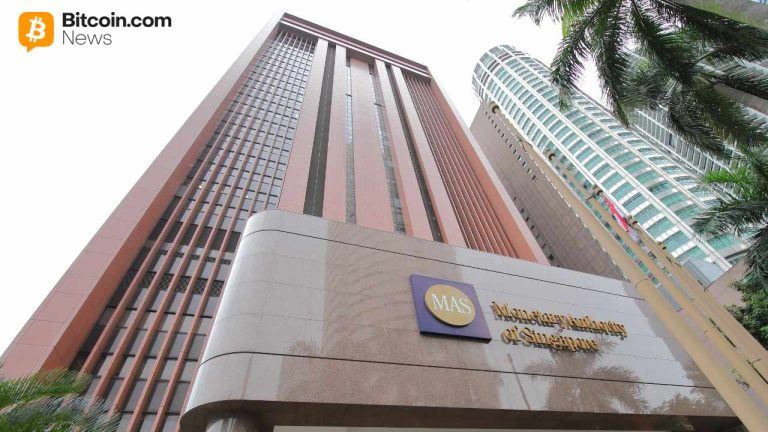The stakes are high in Macron’s gamble
6 min read

This article is an onsite version of our Europe Express newsletter. Sign up here to get the newsletter sent straight to your inbox every weekday and Saturday morning
Welcome back. President Emmanuel Macron dropped a political bombshell last weekend when he ordered snap elections for the National Assembly despite the real risk that they will deliver the far-right into power.
Macron’s high-stakes gamble completely overshadowed the results of the European parliament elections, which produced — as expected — a more conservative assembly, with a right-of-centre majority for the first time. You can reach me at ben.hall@ft.com
We are dedicating this and the following four Saturday editions of Europe Express to French politics, given the huge potential impact on the country and the EU. You can also read it en français here.
A moment of clarification
France is suffering a political fever, Macron said, lamenting the fact that half of French voters backed far-right or far-left parties in the EU ballot, more than three times as many as his centrist alliance. The snap legislative election in two weeks’ time, he said, would be a “moment of clarification”.
Macron is hoping to shock French voters out of their feverish complacency. They have balked before at voting in the far-right, in three presidential elections where Marine Le Pen and her father Jean-Marie Le Pen made it through to the second round. But this time feels different.
Marine Le Pen’s Rassemblement National is already the biggest opposition party in parliament, with 88 seats. It has real momentum and a slick candidate for prime minister in Jordan Bardella, the 28-year-old party chief and TikTok king, who we profile here.
The RN’s appeal extends well beyond concerns about immigration and race and the party is tapping into widespread feelings of “social decline”, Luc Rouban, one of France’s best experts on the far-right at Sciences Po, explains in this interview with Le Monde.
What is striking about the European results is that RN swept the country, coming first in 93 per cent of communes or local districts. Even Brittany and other parts of the north-west that have previously been impervious to the party’s rise have now succumbed.
Political analysts and commentators have been crunching the numbers this week and their findings are bleak for Macron, even when accounting for the fact that turn out and stakes will be higher in the National Assembly vote than in the European one.
Guillaume Tabard in Le Figaro, a conservative daily, produced some modelling based on the European results. He made adjustments for the legislative elections when candidates winning the support of more than 12.5 per cent of registered voters in the first round go to a run-off.
The calculations are astonishing. The far-right bloc (RN and the smaller Reconquête) are in the lead in 362 seats. The left, which crucially has formed a “popular front” spanning anti-capitalist radicals and social democrats, is ahead in 211. Macron’s centrist bloc is ahead in only three (all of them seats for French people abroad) and the centre-right in one, the wealthy 16th arrondissement in Paris.
The second round would come down to a fight between two camps: left and far-right would battle it out in in 536 seats; Macron’s alliance would make the run-off in only 41, and LR in three, Tabard found.
As Thomas Legrand noted in Libération, the left-leaning newspaper, the election could result in the “crushing of Macronism”, which was built on the supposed dépassement or redundancy of the old left-right political divide.
The reported doubts in Macron’s own camp about his gambit are best illustrated by the glum faces in this photo of a government meeting on 9 June, released (somewhat inexplicably) by the Élysée palace.
Macron justified his dissolution decision saying France needed a functioning government whereas his centrist alliance has been unable to form a majority for two years. Elections are a logical step.
On this issue the president has the public on side — 66 per cent of people surveyed in this poll back returning to the ballot box (with majority support from every political affiliation).
Since Macron understands the probabilities of an RN victory one can only conclude he sees some upside in it, otherwise why run the risk? As Sylvie Kauffmann wrote in the FT, this is a bigger bet than he’s taken before and could make France’s political mess even worse. Some observers regard his gamble as a smart move, a way of giving the French people a taste of the far-right in power now so they are put off from ordering the main course later by voting Le Pen into the all-powerful presidency in 2027.
Olivier Blanchard, the former chief economist of the IMF, said snap elections were the right move. He told me:
“Absent dissolution, the RN would have continued to be more and more popular, the president would have been unable to do much, and the RN would probably have won the elections, the presidency and the prime minister. This way, if the RN gets a majority, it may get a prime minister for three years, but with Macron still as president, which considerably reduces what he can do. And if they make a mess, the probability that they win the next election is much smaller.”
Zaki Laïdi, a professor at Sciences Po, wrote for Project Syndicate:
“Burdened with the actual responsibilities of governance, the party will no longer enjoy the benefits of political virginity. Macron wants to do to RN what François Mitterrand did to the right in 1986 [Mitterrand prevented the right from winning an absolutely majority by introducing an element of proportional representation]. If Le Pen’s bid for the presidency in 2027 fails, Macron can leave power with no regrets, claiming that he has done France a service. If he fails, his already damaged legacy will suffer another massive blow.”
Others, such as Eurasia Group’s Mujtaba Rahman, have countered that it is complacent to assume an RN government would do enough damage only to fatally harm its reputation. Assuming they have a parliamentary majority, so-called “cohabitation” governments have a lot of scope to pursue their agendas, as we point out in this explainer.
It is also just possible that an RN government could surprise people with a pragmatic, responsible approach to government — like Italy’s Giorgia Meloni’s. Senior RN party figures reject Meloni’s moderate path, as we reported in this big read. But Bardella, who some regard as more open to the Meloni path than Le Pen, sent a signal this week. Asked if an RN government would stick to its promise of reversing a planned increase in the pension age (costing a cool €26.5bn a year, according to the Institut Montaigne think tank), Bardella replied: “We will see.”
Several anglophone commentators have drawn a parallel between Macron’s snap poll and David Cameron’s 2016 Brexit referendum in the UK — both colossal political gambles with huge ramifications for their countries and for the EU.
Historians will argue for years over the merits of Macron’s high stakes bet. You can have your say here now, by voting in our poll (results next week).

Project Truss
As the campaign picks up speed, Macron’s allies are reaching across the Channel for another episode in Britain’s less-than-glorious recent past to make their case: Liz Truss’s disastrous premiership in which she took on the markets with massive unfunded tax cuts, and lost.
Finance minister Bruno Le Maire warned of a “Truss-style scenario” as financial markets this week digested the possibility of tens of billions of extra borrowing with the far-right in power and sold off French treasuries. The consultancy Asterès pointed out that RN’s spending commitments from the 2022 elections (there has been no programme update since) amount to about twice the cost of Truss’s unfunded tax cuts, according to a costing by the Institut Montaigne from two yeas ago.
You are going to hear a lot more in French about Britain’s shortest-serving prime minister in the weeks ahead.
One of the most gripping French political sub-stories of the week has been the implosion of the centre-right Les Républicains. Raphaëlle Bacqué in Le Monde recounts how Eric Ciotti, ejected as party leader this week, hatched a plan with billionaire media mogul Vincent Bolloré to form a pact with the far-right.
Ben’s pick of the week
Janan Ganesh makes a powerful argument for ending the cordon sanitaire against the radical right in Europe, saying the best hope against populism is to expose it to government.







